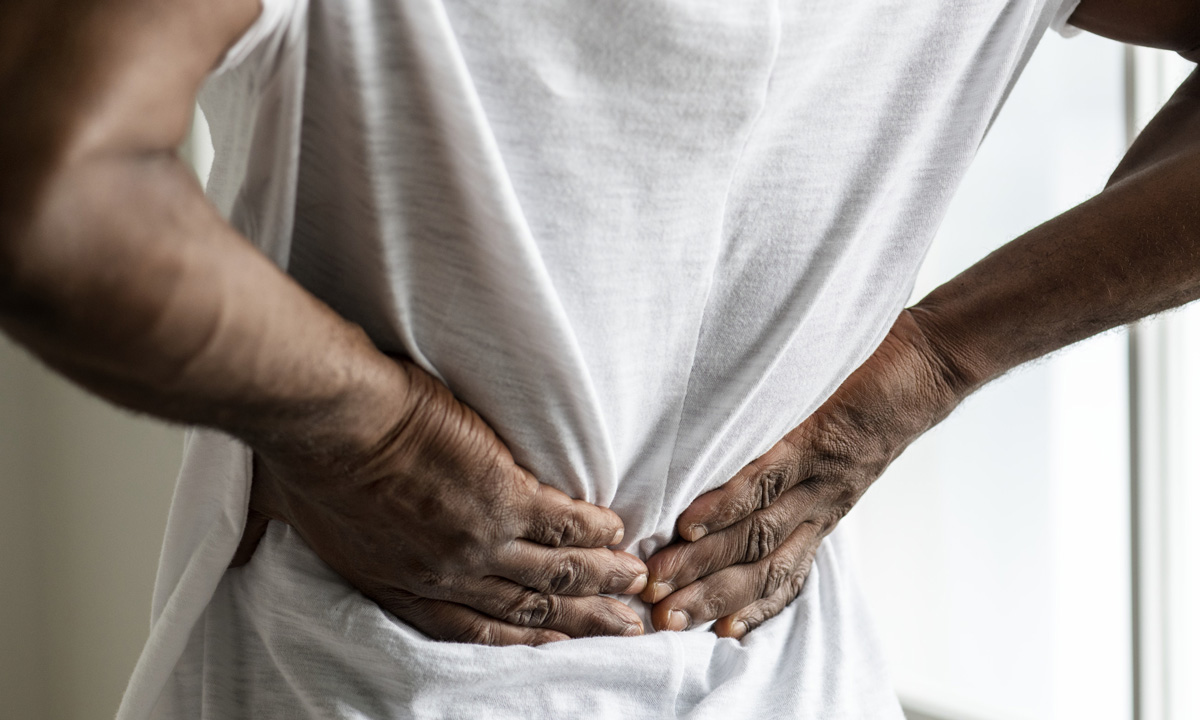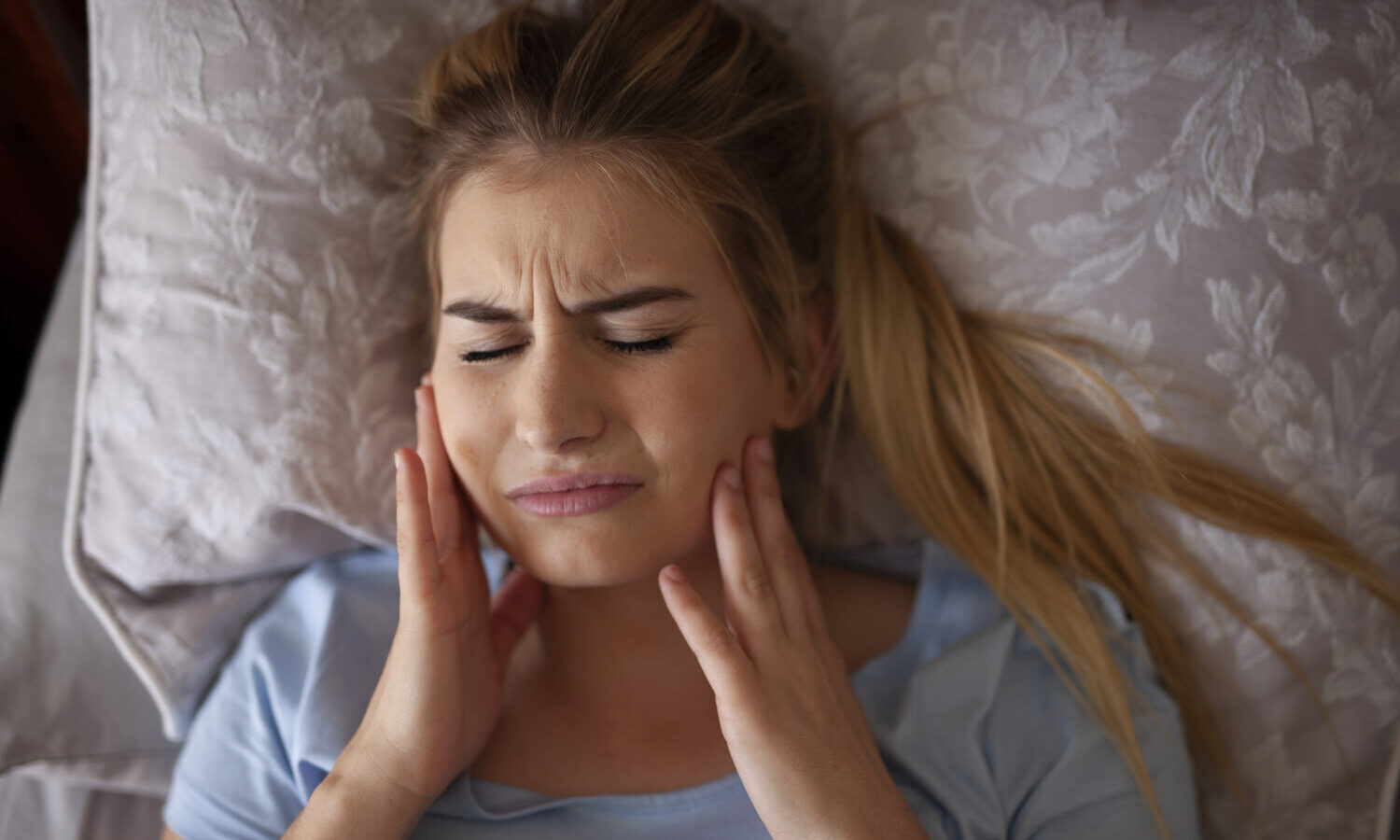While there are only a few studies focusing on cannabis exclusively for TMJ disorders compared to other illnesses, their results have been promising.
This article originally appeared on Cannabis.net and has been reposted with permission.
Temporomandibular joint (TMJ) disorders affect the jaw as well as the muscles responsible for controlling movement in the jaw. The temporomandibular joint functions similarly to a sliding hinge and connects the skull and jawbone. The human body has one of these jaws on each side.
The symptoms of TMJ include tenderness or pain in the jaw, pain in the left, right, or both jaws, clicking sound when you open your mouth, pain around the ear and face, muscle spasms, joint locking, difficulty chewing, and more. These can be caused by various factors such as damage in the joint or the joint cartilage due to impact, eroding of the disk, or misalignment of the jaw disk. In most cases of people with TMJ, the exact cause is unclear.

RELATED: Cannabis And Rheumatoid Arthritis: What Are The Best Options?
According to the National Institutes of Health, there are some 10 million Americans that have temporomandibular joint disorders. They tend to affect people between the ages of 20 to 40, and it’s more common in women compared to men. Most cases of TMJ disorders are mild and when diagnosed early, they are not expected to worsen over time.
Lifestyle changes such as eating soft food, application of ice packs, avoiding extreme jaw movements as well as relaxation techniques are recommended. If this is not enough, pain medications and NSAIDS may be recommended by doctors and in severe cases, the use of a stabilization splint, a type of oral appliance, may be needed. In rare cases, botox and surgery may be required.
Millions of people with TMJ struggle with the severe pain and discomfort brought on by this condition.
How Cannabis Helps TMJ Disorders
While there are only a few studies focusing on cannabis exclusively for TMJ disorders compared to other illnesses, their results have been promising. In one study, low cannabis doses were shown to be effective in treating the pain associated with this disease, which is wonderful especially for people who don’t want to take NSAIDS due to the side effects.
In another study, researchers analyzed the impact of CBD oil on 60 patients who had symptoms of TMJ. The participants were grouped into two; one of these groups were given CBD oil for topical application while the second group were given a placebo. The researchers also analyzed muscle tension among these patients before and after treatment which lasted for 14 days. Electromyography was used to measure muscle tension, and the participants were also asked to rate the intensity of their pain through a 10-point scale.
The group who was given CBD oil had 11% less tension on the left side and 13% less muscle tension on the right side, while the placebo group reported 0.2% and 3.3% improvement, respectively. With a reduction in muscle tension, the participants also had less pain. Those in the CBD oil treatment group reported that they had 70$ less pain while it was only 10% for those given placebo. The researchers concluded that applying CBD transdermally was effective in decreasing activity in the jaw muscles and was particularly helpful for patients who suffered from myofascial pain.
There is also another study revealing that a synthetic cannabinoid agonist, which is a chemical designed to bind with the same receptors that cannabis does, provided TMJ patients with relief equal to what they would get from taking morphine.
However, the research on the analgesic and anti-inflammatory properties of cannabis is strong, with dozens of studies backing up its use for treating pain. In fact, according to Harvard, the number one reason people use medical marijuana is for pain. Scientists continue looking for explanations as to how it does, and to date, we have numerous hypotheses.

RELATED: A Deep Dive Into Cannabis For Migraines — What Works And What To Stay Away From
Both CBD and THC work differently in the human body via cannabinoid receptors that can help change how we perceive pain. “We know a lot more about how THC works in terms of the molecular mechanism than CBD,” explains Steve Alexander, a University of Nottingham Medical School associate professor of pharmacology. “THC activates certain cannabinoid receptors, one of which is in the nerve cells and the other is in the immune cells. When it activates the one in the nerve cells, it reduces the sensation of pain,” he adds.
CBD has also been making waves within the medical community for its ability to treat inflammation and pain. Some studies show that CBD works to alleviate pain by working on the pain sensing systems in the body, known as nociceptive. As the human body’s endocannabinoid system helps to regulate many important functions in the body including pain management, it makes sense why cannabis can work so well.
Using Cannabis For TMJ
There are many ways patients can administer cannabis for treating TMJ, though some people may find that one method works better for them than others. For those who need immediate relief, smoking or vaporizing cannabis is recommended. Oral consumption of oils and sublingual application are also recommended. For TMJ patients who suffer from chronic pain due to TMJ, taking edibles with THC, CBD, or a ratio of both are effective for long-lasting relief though its effects can take 1-2 hours.
Using cannabis topicals can also provide fast-acting relief for TMJ. Simply apply the topical on the affected area outside the jaw or around the face and neck. This will enable the therapeutic cannabinoids to be absorbed by the skin and provide localized relief. Just be sure not to medicate with cannabis without consulting with your doctor if you are taking other medications due to potential harmful interactions.
This article originally appeared on Cannabis.net and has been reposted with permission.


